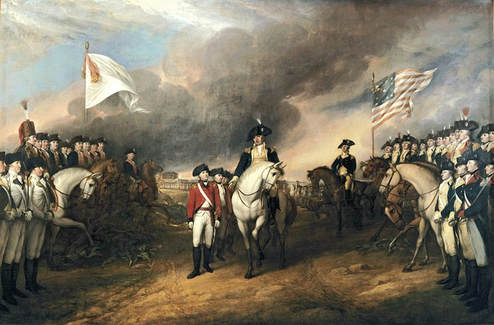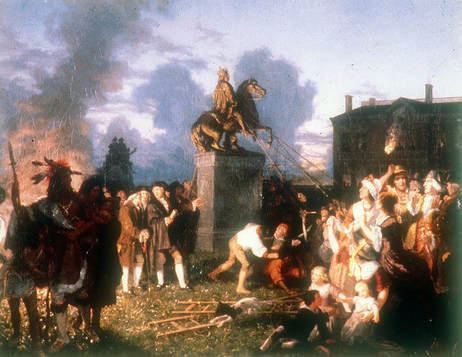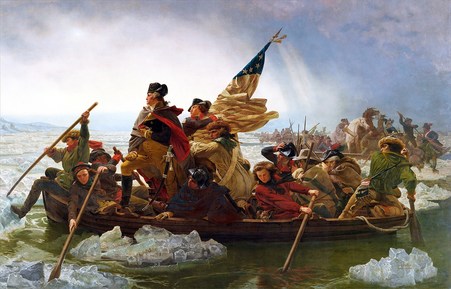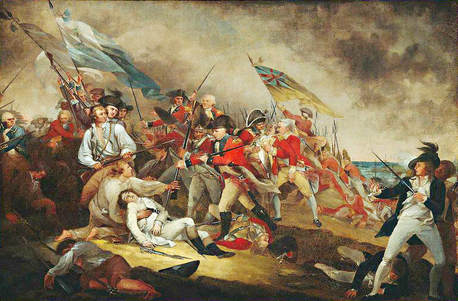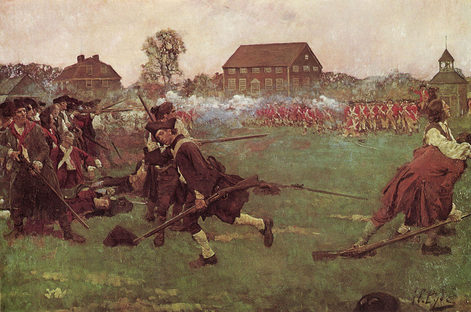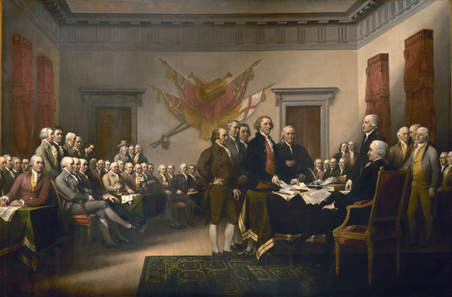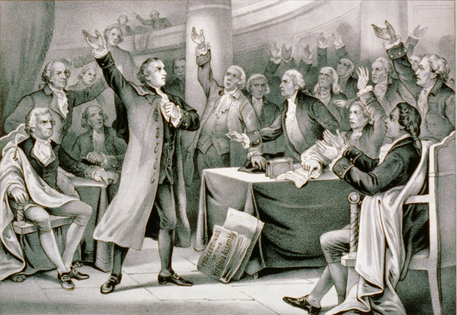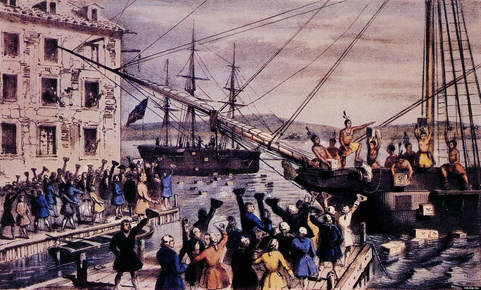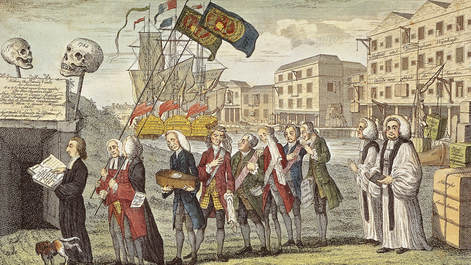|
Content Standards:
Students will analyze how history is a series of connected events shaped by multiple cause and effect relationships, tying past to present. Learning Target: I can discuss the key military and political turning points of the American Revolution. Critical Vocabulary: Second Continental Congress, Thomas Jefferson, George Washington, Continental Army, Olive Branch Petition, Battle of Bunker Hill, Loyalists, Patriots, Common Sense, Declaration of Independence, General William Howe, Battle of Long Island, The American Crisis, New Jersey Campaign, General John Burgoyne, Battle of Saratoga, Valley Forge, Baron von Steuben, General Charles Cornwallis, General Benedict Arnold, Battle of Yorktown, Peace of Paris Today's Agenda:
2 Comments
Content Standards:
Students will analyze how history is a series of connected events shaped by multiple cause and effect relationships, tying past to present. Learning Target: I can discuss the key military and political turning points of the American Revolution. Critical Vocabulary: Second Continental Congress, Thomas Jefferson, George Washington, Continental Army, Olive Branch Petition, Battle of Bunker Hill, Loyalists, Patriots, Common Sense, Declaration of Independence, General William Howe, Battle of Long Island, The American Crisis, New Jersey Campaign, General John Burgoyne, Battle of Saratoga, Valley Forge, Baron von Steuben, General Charles Cornwallis, General Benedict Arnold, Battle of Yorktown, Peace of Paris Today's Agenda:
Content Standards:
Students will analyze how history is a series of connected events shaped by multiple cause and effect relationships, tying past to present. Learning Target: I can discuss the key military and political turning points of the American Revolution. Critical Vocabulary: Second Continental Congress, Thomas Jefferson, George Washington, Continental Army, Olive Branch Petition, Battle of Bunker Hill, Loyalists, Patriots, Common Sense, Declaration of Independence, General William Howe, Battle of Long Island, The American Crisis, New Jersey Campaign, General John Burgoyne, Battle of Saratoga, Valley Forge, Baron von Steuben, General Charles Cornwallis, General Benedict Arnold, Battle of Yorktown, Peace of Paris Today's Agenda:
Content Standards:
Students will analyze how history is a series of connected events shaped by multiple cause and effect relationships, tying past to present. Learning Target: I can discuss the key military and political turning points of the American Revolution. Critical Vocabulary: Second Continental Congress, Thomas Jefferson, George Washington, Continental Army, Olive Branch Petition, Battle of Bunker Hill, Loyalists, Patriots, Common Sense, Declaration of Independence, General William Howe, Battle of Long Island, The American Crisis, New Jersey Campaign, General John Burgoyne, Battle of Saratoga, Valley Forge, Baron von Steuben, General Charles Cornwallis, General Benedict Arnold, Battle of Yorktown, Peace of Paris Today's Agenda:
Content Standards: Students will analyze how history is a series of connected events shaped by multiple cause and effect relationships, tying past to present. Learning Target: I can discuss the key military and political turning points of the American Revolution. Critical Vocabulary: Second Continental Congress, Thomas Jefferson, George Washington, Continental Army, Olive Branch Petition, Battle of Bunker Hill, Loyalists, Patriots, Common Sense, Declaration of Independence, General William Howe, Battle of Long Island, The American Crisis, New Jersey Campaign, General John Burgoyne, Battle of Saratoga, Valley Forge, Baron von Steuben, General Charles Cornwallis, General Benedict Arnold, Battle of Yorktown, Peace of Paris Today's Agenda:
Homework: The American Revolution Reading Content Standards:
Students will analyze how history is a series of connected events shaped by multiple cause and effect relationships, tying past to present. Learning Target: I can summarize the social, political, and economic factors that drove the American colonies to independence. Critical Vocabulary: King George III, Albany Plan of Union, Treaty of Paris, Proclamation of 1763, Writs of Assistance, Sugar Act, Stamp Act, Quartering Act, Stamp Act Congress, Sons of Liberty, Declaratory Act, Townshend Acts, Circular Letter, Boston Massacre, Captain Thomas Preston, Crispus Attucks, Gaspee, British East India Tea Company, Tea Act, Boston Tea Party, Coercive Acts, Quebec Act, Intolerable Acts, First Continental Congress, Second Continental Congress, Lexington and Concord, Continental Army, George Washington, Olive Branch Petition, Hessian, Thomas Paine, Common Sense, Thomas Jefferson Today's Agenda:
Homework: Revolutionary America Reading Content Standards:
Students will analyze how history is a series of connected events shaped by multiple cause and effect relationships, tying past to present. Learning Target: I can summarize the social, political, and economic factors that drove the American colonies to independence. Critical Vocabulary: King George III, Albany Plan of Union, Treaty of Paris, Proclamation of 1763, Writs of Assistance, Sugar Act, Stamp Act, Quartering Act, Stamp Act Congress, Sons of Liberty, Declaratory Act, Townshend Acts, Circular Letter, Boston Massacre, Captain Thomas Preston, Crispus Attucks, Gaspee, British East India Tea Company, Tea Act, Boston Tea Party, Coercive Acts, Quebec Act, Intolerable Acts, First Continental Congress, Second Continental Congress, Lexington and Concord, Continental Army, George Washington, Olive Branch Petition, Hessian, Thomas Paine, Common Sense, Thomas Jefferson Today's Agenda:
Homework: Revolutionary America Reading Content Standards:
Students will analyze how history is a series of connected events shaped by multiple cause and effect relationships, tying past to present. Learning Target: I can summarize the social, political, and economic factors that drove the American colonies to independence. Critical Vocabulary: King George III, Albany Plan of Union, Treaty of Paris, Proclamation of 1763, Writs of Assistance, Sugar Act, Stamp Act, Quartering Act, Stamp Act Congress, Sons of Liberty, Declaratory Act, Townshend Acts, Circular Letter, Boston Massacre, Captain Thomas Preston, Crispus Attucks, Gaspee, British East India Tea Company, Tea Act, Boston Tea Party, Coercive Acts, Quebec Act, Intolerable Acts, First Continental Congress, Second Continental Congress, Lexington and Concord, Continental Army, George Washington, Olive Branch Petition, Hessian, Thomas Paine, Common Sense, Thomas Jefferson Today's Agenda:
Homework: Revolutionary America Reading Content Standards:
Students will analyze how history is a series of connected events shaped by multiple cause and effect relationships, tying past to present. Learning Target: I can summarize the social, political, and economic factors that drove the American colonies to independence. Critical Vocabulary: King George III, Albany Plan of Union, Treaty of Paris, Proclamation of 1763, Writs of Assistance, Sugar Act, Stamp Act, Quartering Act, Stamp Act Congress, Sons of Liberty, Declaratory Act, Townshend Acts, Circular Letter, Boston Massacre, Captain Thomas Preston, Crispus Attucks, Gaspee, British East India Tea Company, Tea Act, Boston Tea Party, Coercive Acts, Quebec Act, Intolerable Acts, First Continental Congress, Second Continental Congress, Lexington and Concord, Continental Army, George Washington, Olive Branch Petition, Hessian, Thomas Paine, Common Sense, Thomas Jefferson Today's Agenda:
Homework: Revolutionary America Reading Content Standards:
Students will analyze how history is a series of connected events shaped by multiple cause and effect relationships, tying past to present. Learning Target: I can summarize the social, political, and economic factors that drove the American colonies to independence. Critical Vocabulary: King George III, Albany Plan of Union, Treaty of Paris, Proclamation of 1763, Writs of Assistance, Sugar Act, Stamp Act, Quartering Act, Stamp Act Congress, Sons of Liberty, Declaratory Act, Townshend Acts, Circular Letter, Boston Massacre, Captain Thomas Preston, Crispus Attucks, Gaspee, British East India Tea Company, Tea Act, Boston Tea Party, Coercive Acts, Quebec Act, Intolerable Acts, First Continental Congress, Second Continental Congress, Lexington and Concord, Continental Army, George Washington, Olive Branch Petition, Hessian, Thomas Paine, Common Sense, Thomas Jefferson Today's Agenda:
Homework: Revolutionary America Reading |
A life is not important except in the impact it has on other lives.
-Jackie Robinson AnnouncementsMay 21: No School
May 27: No School May 30: Last Day ResourcesArchives
May 2019
Visitors |
